Introducing Division 45 Fellows
Congratulations to the newly honored APA Division 45 Fellows! In this column, we are excited to feature each fellow’s work, areas of impact, sources of resilience when facing discouragement, and advice to students and early career professionals. We are grateful to each Fellow for taking the time to share about themselves!
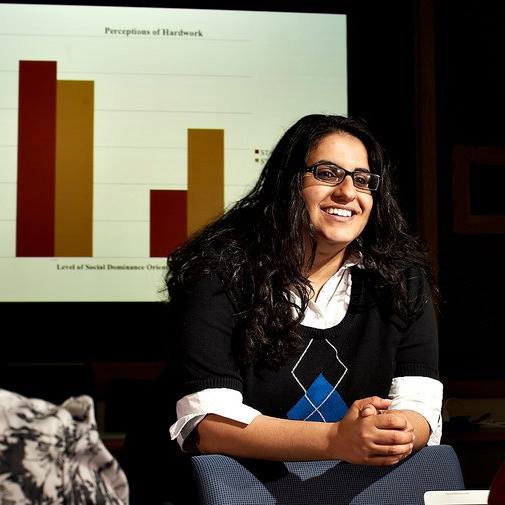
Germine H. Awad
Please describe your professional work:
Germine Awad, Ph.D., is an associate professor and area chair of the Human Development, Culture and Learning Sciences Program in the Department of Educational Psychology at the University of Texas at Austin. She is also affiliated with the Counseling Psychology Program. Her research interests include prejudicial attitudes towards ethnic minorities and immigrants, ethnic identity, racial identity, and acculturation (with a focus on Arab and African Americans), and multicultural research methodology. She teaches courses in research methodology, statistics, psychology of women, and psychology of race and racism.
How did you decide on an area of focus in psychology?
I was always interested in human behavior and research methodology so psychology was the field for me.
What is the area of greatest impact that your work has made in the lives of BIPOC individuals and communities?
Probably my work with Arab/MENA Americans. I am one of the co-founders of AMENA-Psy and have served as treasurer and am currently the President-Elect. I have also served as the inaugural MENA/Arab Member-at-Large for APA Division 45 (Division of Culture, Race, & Ethnicity). Additionally, I am the co-editor (with Mona Amer) of The Handbook of Arab American Psychology and one of the creators of the Model of Cumulative Racial/Ethnic Trauma for MENA Americans. Finally, I conduct research on the process of acculturation and ethnic identity formation for Arab/MENA Americans residing in the United States. My findings show that Arab/MENA Americans construct their ethnic identity in complex and sophisticated ways. More recently, I have collected data testing an experimental streamlined version of a Census race/ethnicity question with Middle Eastern/Arab Americans. I also study the effect of discrimination on the Arab and African American community as well as predictors of prejudice toward Arab Americans, individuals of Middle Eastern descent, and other minoritized groups.
What got you through moments of discouragement in your career?
I always remind myself that I have a responsibility to my people. It’s not about me. I have a responsibility to try to mitigate the effects of prejudice and discrimination to help minoritized individuals cope with discrimination. I also have a responsibility, to the extent that I am able, to speak truth to power and help dismantle oppressive systems.
What advice would you give to Division 45 students and early career psychologists?
Get a good support system and take care of yourself when you need to. You can’t do this type of work if you are not well. Take care of yourself so that you are able to meet your goals.
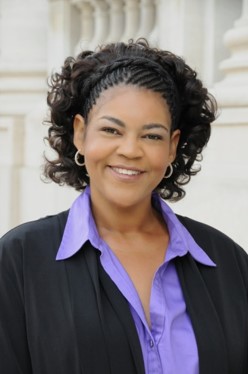
Adrienne R. Carter-Sowell
Please describe your professional work:
My professional work focuses on validating pervasive gaps in inclusion and overcoming resistance to equity, and lack of accountability amid intergroup and intragroup relations. I am a member of multiple External Advisory Boards, a Co-Principal Investigator on several Collaborative Research projects, and an Ad Hoc Reviewer for various programs at the National Science Foundation. I enjoy teaching students, training future scholars and researchers, and mentoring early career faculty. I welcome invitations to address the professional discourse and public debates on identity politics, workplace inequities, and health disparities. I am serving as my department’s first Associate Head for Diversity, Equity, & Inclusion.
How did you decide on an area of focus in psychology?
I was well advised to never let reality limit my study ideas or research interests. I follow my instincts and I invest in my intellectual intuitions. Persistence, timing, and patience are very important for an enduring career. I maintain both short-term and long-term goals, so that I can develop, expand, and adjust my focus accordingly.
What is the area of greatest impact that your work has made in the lives of BIPOC individuals and communities?
The greatest impact that my work has made in the lives of BIPOC individuals and communities is that I validate painful, chronic, everyday experiences that are often dismissed and minimized by others. I publish, present, and collaborate as often as possible so that I can disseminate my findings to fellow researchers and to elementary school students on career day. If I can’t help you, I will help you find someone who can. I lead by example in my work ethic and I maintain genuine connections with individuals and communities.
What got you through moments of discouragement in your career?
I have been able to overcome moments of discouragement in my career because I don’t take the setbacks and disappointments personally. I believe that it’s important to learn from your mistakes. I appreciate the support, time, and kindness of many wonderful people. I don’t take for granted how I have benefited from many circumstances that I did and did not have control over. The good times and the bad times are temporary, so pace yourself and push on!
What advice would you give to Division 45 students and early career psychologists?
There is NO better time to be a scholar of color. Follow what inspires you and moves you toward your goals. Remember you are not alone, so seek cohorts for support, guidance and advocacy. Often your professional life and personal life reflect the inequities and injustices that exist for marginalized people everywhere. Despite the compounded burdens faced on and off the job, scholars of color have persisted in tougher times than these. You can get it done, you will succeed, just hang in there!
Follow up on question 2:
Howdy!
You are invited to watch a FREE virtual screening of the film “Picture a Scientist” sponsored by the Department of Biomedical Engineering. You must register below to receive a link to the film which will be available for viewing for 48 hours beginning Friday, September 18th, 2020 at 7:00 p.m. CDT. Registration closes Thursday, September 17th at 5:00 p.m.
Following this screening, the Women’s Resource Center will be hosting a virtual discussion panel consisting of faculty members from Texas A&M University. This panel will take place on Monday, September 21st, 2020 at 6:00 p.m. CDT via Zoom. The panelists include Dr. Julie Newman, Dr. Cecilia Monclova-Santana, Dr. Shreya Raghavan, Dr. Yava Jones-Hall, and Dr. Jodie Lutkenhaus and the event will be moderated by Dr. Adrienne R. Carter-Sowell.
Register for the screening and panel at tx.ag/pictureascientist
| Julie Newman Professor Department Head Department of Geology and Geophysics Texas A&M University | Cecilia Monclova-Santana Assistant Professor Department of Plant Pathology and Microbiology Texas A&M University | Shreya Raghavan Assistant Professor Department of Biomedical Engineering Texas A&M University |
| Yava Jones-Hall Associate Professor Director of the Core Histology Laboratory Department of Veterinary Pathobiology Texas A&M University | Adrienne R. Carter-Sowell Associate Professor & Associate Head of Diversity, Equity, & Inclusion Department of Psychological and Brain Sciences, jointly appointed in the Interdisciplinary Critical Studies Program Texas A&M University | Jodie Lutkenhaus Professor Department of Chemical Engineering Texas A&M University |
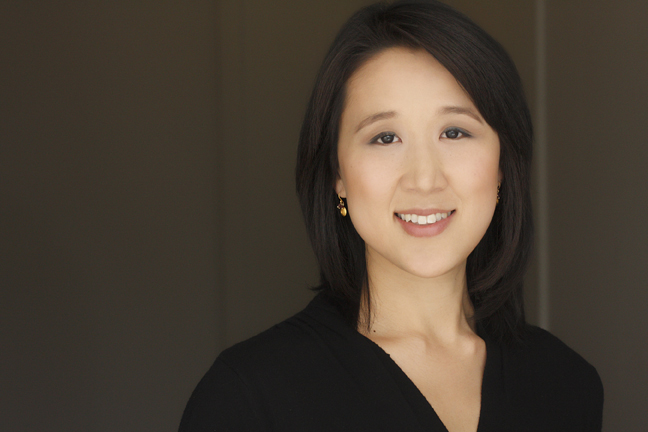
Doris F. Chang
Please describe your professional work:
One of the things that I’ve loved about being a psychologist is that there are so many ways to contribute. I am an Associate Professor at the NYU Silver School of Social Work, a practicing psychologist at Soho CBT+Mindfulness Center, and trainer in diversity, equity, and inclusion. My research focuses on ways to improve interracial dynamics and outcomes in psychotherapy; strategies to improve the quality of care for Asian Americans;, and inclusive, culturally-grounded interventions for clinical and educational contexts that integrate mindfulness and other contemplative traditions.
How did you decide on an area of focus in psychology?
Early in my career, I really struggled to decide what to focus on as there were so many things I was interested in. I’ve also found that all of the experiences that we have, end up finding their way into our work. For example, being responsible for developing and teaching the required “diversity” courses in my department led me to become more interested in training, and the particular need for tools to help folks manage the difficult emotions and interpersonal conflicts that arise when learning about racism and other forms of oppression, power and privilege. As my own training and practice in mindfulness deepened, these interests eventually converged in a project to develop Mindfulness-Based Critical Consciousness training with a grant from the Mind and Life institute. Even though my research probably would have advanced faster had I had stuck with one main area of focus, I’ve come to see my diverse interests as a strength that I bring to my work.
What is the area of greatest impact that your work has made in the lives of BIPOC individuals and communities?
In my first faculty position, where I was the first tenured faculty member of color, I know that I had a positive impact on my BIPOC students. I worked hard to advocate for them and to support them in getting through a program that had a very toxic racial climate. Through my research, teaching and training of generations of future clinicians, I have tried to foster greater critical consciousness and anti-oppressive approaches to therapy. I hope that this has enabled them to cultivate more authentic, healing relationships with their BIPOC clients and improve the quality of mental care that they receive.
What got you through moments of discouragement in your career?
My support system of my partner, Jonathan, and my network of incredible, strong, inspiring fellow psychologist friends, many of whom I met through Division 45 and the Asian American Psychological Association. My kids have also been incredibly grounding and bring me so much joy, which helps balance out the hard days. As they have gotten older, I have been able to share more about the challenges of my work, and they are now able to listen and offer their support, BEFORE they ask me to cook them dinner. Finally, being a practicing psychologist has also been an amazing gift. Conducting research is an exercise in delay of gratification, and some days it is so nice to just sit down with someone for 50 minutes and know that you are making a difference in their life.
What advice would you give to Division 45 students and early career psychologists.
First, try not to compare yourself to others! We each have our unique strengths, perspectives, and gifts to share. As psychologists, we have so many ways that we can positively impact BIPOC communities and the world at large. Don’t be afraid to lean into what matters most to you, even if that’s not always valued by your colleagues or superiors. Second, you don’t have to stay in a job or organization that is harming you. Don’t be a martyr– know that you always have options and that no job is worth sacrificing your happiness and well-being.
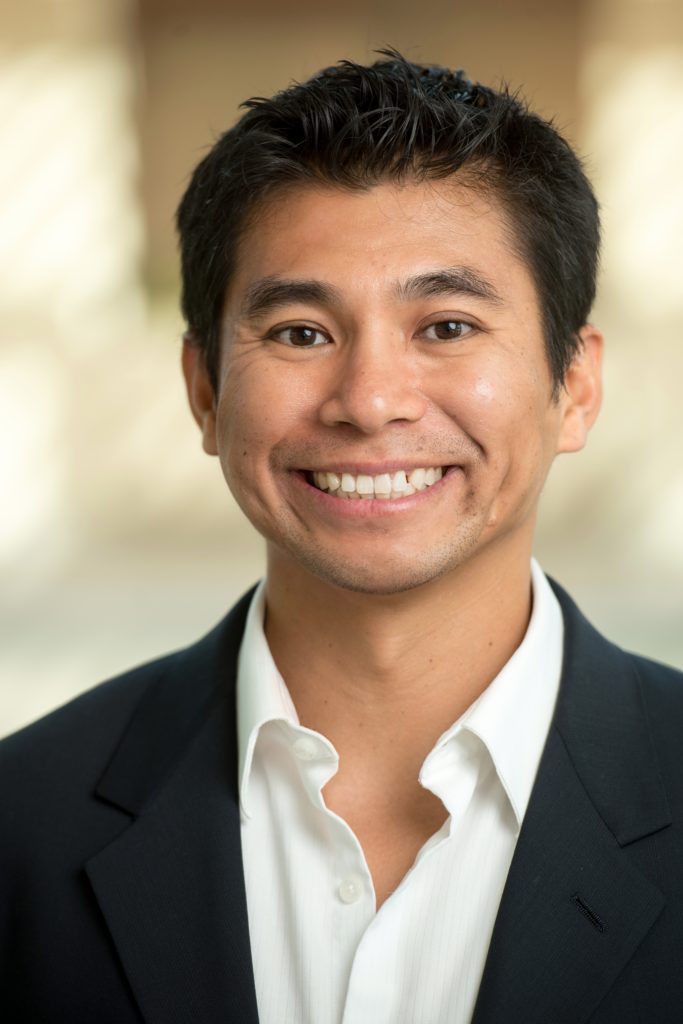
Wei-Chin Hwang
Please describe your professional work:
I am a Professor of Clinical Psychology at Claremont McKenna College. I received my PhD from the clinical psychology program at UCLA and completed a postdoctoral fellowship at Harbor UCLA Medical Center. My research focuses on addressing mental health disparities and developing cultural adapted and effective treatments. I am a fellow of the American Psychological Association, Society for the Psychological Study of Culture, Race, and Ethnicity, Asian American Psychological Association, APA Minority Fellowship Program, and the Western Psychological Association. I am also a licensed psychologist and I have an independent clinical and consulting practice in Pasadena and Claremont, California.
How did you decide on an area of focus in psychology?
I went into the field to help improve cultural understanding of mental health issues and help represent underserved and vulnerable populations. I asked myself the question of where I can make the biggest difference in helping people and doing so at multiple levels (e.g., research, teaching, mentoring, practice, and community engagement).
What is the area of greatest impact that your work has made in the lives of BIPOC individuals and communities?
I have developed a number of models and frameworks that help improve cultural competency. Specifically, helping therapists understand how culture influences various mental health processes, how to culturally adapt and tailor mental health services, how to address acculturative forces that create distancing and conflicts in immigrant families (e.g., acculturative family distancing), and how to work through ethnic identity conflicts and mitigate the impact of internalized racism and oppression.
What got you through moments of discouragement in your career?
Keep the faith and recognize that life is about trajectories, and don’t get too caught up in the minutia nor ups and downs in professional life. Take a step back and see things as a road bump to where you are headed, but that the road is clear and that you will get there with courage, strength, and hard work.
What advice would you give to Division 45 students and early career psychologists?
Find things and people who bring joy to your life. Develop a sense of community, take mindful moments, exercise, eat well, and always find time for yourself.
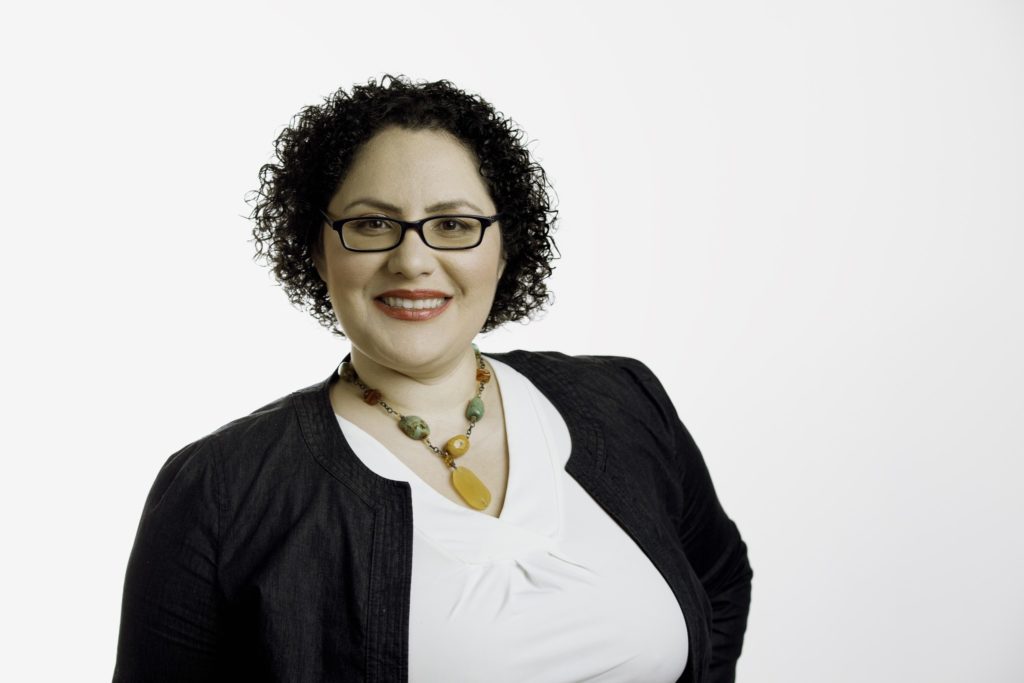
Lizette Ojeda
Please describe your professional work:
I am an Associate Professor at Texas A&M University where I teach courses focused on career development and diversity. I conduct research using an intersectional approach to understanding issues of career and well-being among underrepresented populations, particularly Latinos. My latest work is focused on identifying supports and barriers to career and life satisfaction among ethnically diverse parents working in the STEM industry. I am also a bilingual licensed psychologist and consultant to organizations on issues related to diversity and well-being.
How did you decide on an area of focus in psychology?
I am very passionate about helping people thrive, not just survive–as their whole authentic selves. This means taking into account multiple identities and roles in a holistic manner as it affects their career and life in general. I want to contribute to the science of what helps people maximize their potential, not just sustain their basic needs.
What is the area of greatest impact that your work has made in the lives of BIPOC individuals and communities?
I would say that an area of greatest impact in research would be that I was the first to test the Social Cognitive Model of Well-Being with Latino populations. Within the community, my greatest impact was after the Orlando Mass Shooting. I held a support group for my local Spanish speaking LGBTQ community so they could have a safe space in their language to process this tragedy.
What got you through moments of discouragement in your career?
Remembering that I had become my ancestors’ wildest dreams yet I had it relatively easier compared to them. I could not stop. I had a personal responsibility to everyone that came before me and after me to expand my potential. There was no failure so long as I didn’t quit. This has served me well.
What advice would you give to Division 45 students and early career psychologists?
Get clear on your vision for your career and life. This will help you stay determined when you encounter a stumbling block. Ask for help. Don’t compare yourself to others because not every destination is led by the same path.
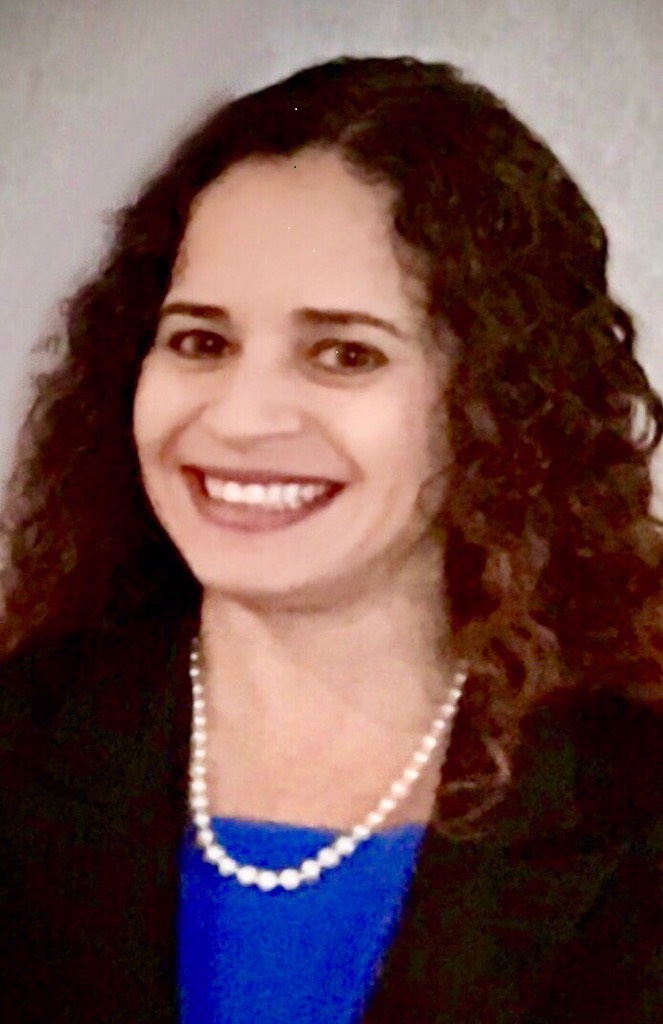
Lisa Sanchez-Johnsen
Please describe your professional work:
My professional work consists of research in the areas of health equity and health disparities, particularly in obesity, bariatric surgery, Latinx psychology, African American smoking, and large-scale health studies with under-represented samples. I have also conducted community-engaged health research studies with community health workers/ health promoters. I enjoy mentoring and supervising trainees and have had 60 trainees and research assistants- the majority of whom have been ethnic minorities or from other underrepresented backgrounds. I have developed several training programs for those interested in community-based research with Latinx populations and have conducted teaching and training in the areas of cultural competency, health equity and community-engaged research. I have conducted culturally competent clinical work and held positions in professional organizations such as the National Latinx Psychological Association and the Society of Behavioral Medicine.
How did you decide on an area of focus in psychology?
My area of focus was shaped by my experiences being born and raised in Hawaii where I was surrounded by many different cultures, ethnic groups and races. I was always fascinated by human behavior and why people do the things that they do. This curiosity translated into wanting to know more about why people engage in unhealthy behaviors. In particular, I wanted to examine these issues among underserved populations, and understand how to best develop and tailor assessments and interventions to different ethnic groups within a research and clinical setting.
What is the area of greatest impact that your work has made in the lives of BIPOC individuals and communities?
The greatest impact has been in understanding the role of culture and ethnicity across health behaviors in Latinx men and women. For example, my research is among the first studies to systematically examine cultural variables underlying race and ethnicity as it relates to diet, physical activity, and body image in Mexican and Puerto Rican women and men. Data from these studies are revealing important factors which should be considered when developing obesity interventions for Latinx communities.
What got you through moments of discouragement in your career?
What has helped me through moments of discouragement was talking to trusted individuals who formally or informally served as part of my professional mentoring team. I also found it helpful to take time to self-reflect on various situations and assess what can be learned from each situation. I believe that much can be learned through every challenge that presents itself.
What advice would you give to Division 45 students and early career psychologists?
My advice would be to actively seek out a team of trusted mentors. There are many talented people within and outside of one’s field that can serve in these roles. Talking to people and knowing that you are not alone in your professional journey really does help. We have so much to learn from each other and to share with each other! I would also like to emphasize the importance of taking care of oneself in all aspects of one’s life- physically, mentally, emotionally, and spiritually.
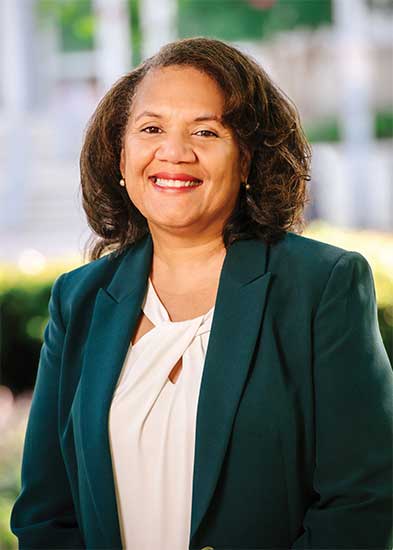
Kecia M. Thomas
Please describe your professional work:
I am an Industrial/Organizational Psychologist and my research focuses on workplace diversity. My practitioner work has focused on the strategic recruitment of underrepresented professionals, diversity resistance, diversity ideologies and their impacts on inclusion, and the careers of high potential women of color who often experience organizations as pets or threats. The other part of my career has been focused on improving organizational (university) structures in ways that create more inclusive environments and supporting the careers of graduate students and faculty. After a 27 year career I recently retired from the University of Georgia and currently my primarily professional role is as Dean of Arts and Sciences at UAB.
How did you decide on an area of focus in psychology?
I just think work is incredibly important and impacts so much of the lives of the worker but also the people around them like friends and family. I’m particularly concerned about organizational cultures that lack inclusion and become toxic for women, people of color, sexual minorities and other marginalized groups. Having a negative workplace experience can quickly contaminate the other aspects of our lives and the people in it.
What is the area of greatest impact that your work has made in the lives of BIPOC individuals and communities?
I would have to say the community of Black I/O Psychologists. I’ve likely trained the majority of Black I/Os working today or I have mentored them if they were educated elsewhere. That is my proudest contribution and now I have the pleasure of observing their influence in higher education, consulting firms and in corporations. I’m grateful that they are engaged in their local communities and support non-profits and mentor junior colleagues and students as well.
What got you through moments of discouragement in your career?
As a first-gen student, often my ignorance of the academy turned out to be a gift. What I mean by that is if I had known the competitiveness of the graduate program I went to or the stature of the faculty I worked with, I may not have even applied. Even as a young professor choosing to engage in diversity research (which really was not an area of I/O at that time), I did so without hesitation and not fully appreciating how minimized that work would be in the 90s and the resistance I would face. Of course now it is critical and one of the leading areas of scholarship for those in my field and for the organizations we serve. Having peers at other institutions support, mentor and coach me was instrumental in my persistence as well as a blind faith that I could get through any challenge that came my way and if not, knowing that something better was around the corner.
What advice would you give to Division 45 students and early career psychologists?
Speak up, do your best and broaden your network. Don’t be afraid to dive deeply into the areas you care and are concerned about in your teaching, research and practice. Most importantly take care of yourself and invest in the research and places that support you.
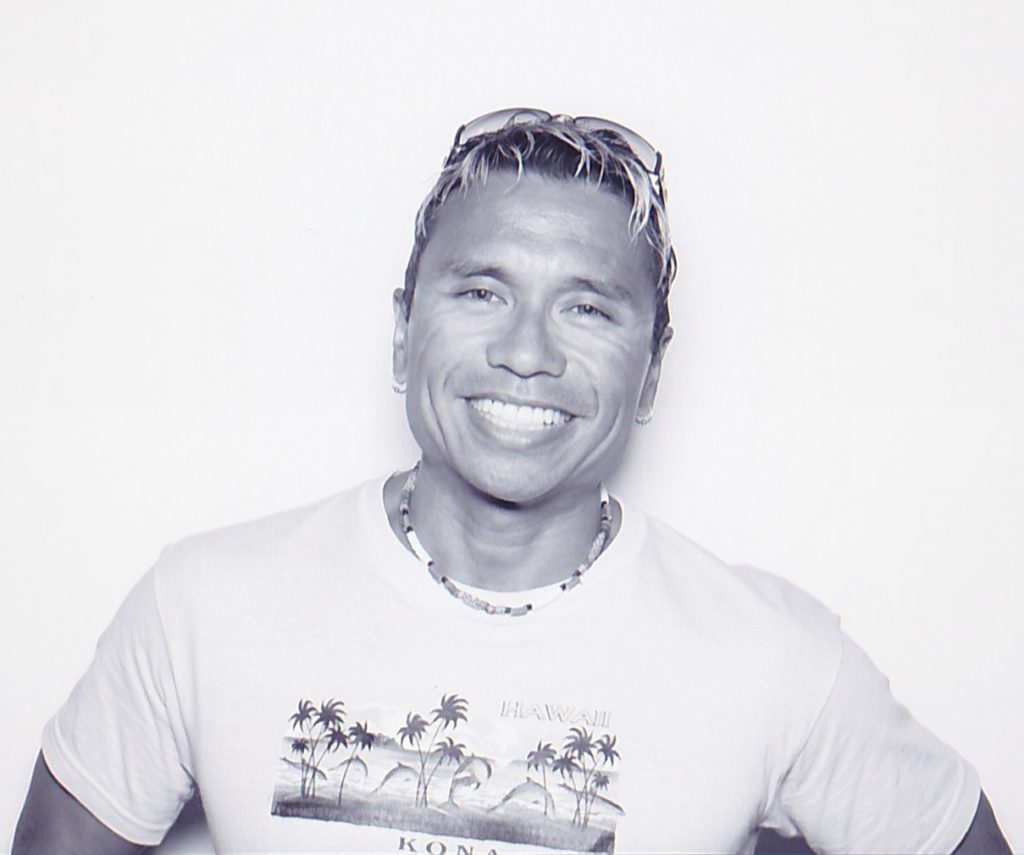
Byron L. Zamboanga
Please describe your professional work:
My research examines sociocultural and cognitive determinants of risky drinking behaviors among adolescents and young adults in the United States. I have recently expanded my scholastic work to young adults in Australia, New Zealand, Argentina, and Canada. I am also currently working on a collaborative project that examines acculturation and substance use among migrants from racial and ethnic minority backgrounds in Western Australia.
How did you decide on an area of focus in psychology?
When I was an undergraduate, I read Dr. Stanley Sue’s work on culture and minority mental health. It was his work that inspired me to pursue culture and health outcomes research with minority populations. That is when I decided to pursue a doctorate degree in psychology.
What is the area of greatest impact that your work has made in the lives of BIPOC individuals and communities? My work on acculturation has contributed to our understanding of how we think about and measure acculturation, and which aspects of acculturation are associated with alcohol use and other health outcomes among U.S. Hispanics and Asian Americans.
What got you through moments of discouragement in your career? Recognizing the importance of having a strong social support system, I spend time hanging out and/or talking with my significant other, aunt, childhood friends, colleagues I trust and have worked with for well over a decade, and my new kitten named Kona. They remind me of what is important in my life and they help keep me centered.
What advice would you give to Division 45 students and early career psychologists?
Find collaborators you trust, work well with, and who uplift you.
Focus Fall 2020
- Editor’s Column
- Graduate Student Representative’s Column
- Healing the Wounds of Racial Trauma
- Introducing Division 45 Fellows
- Past President’s Column
- President’s Column
- Radical Healing during COVID-19 and Racism Crises
- Report of Chair of the Council of Past Presidents
- Report of Division 45 Antiracism Committee